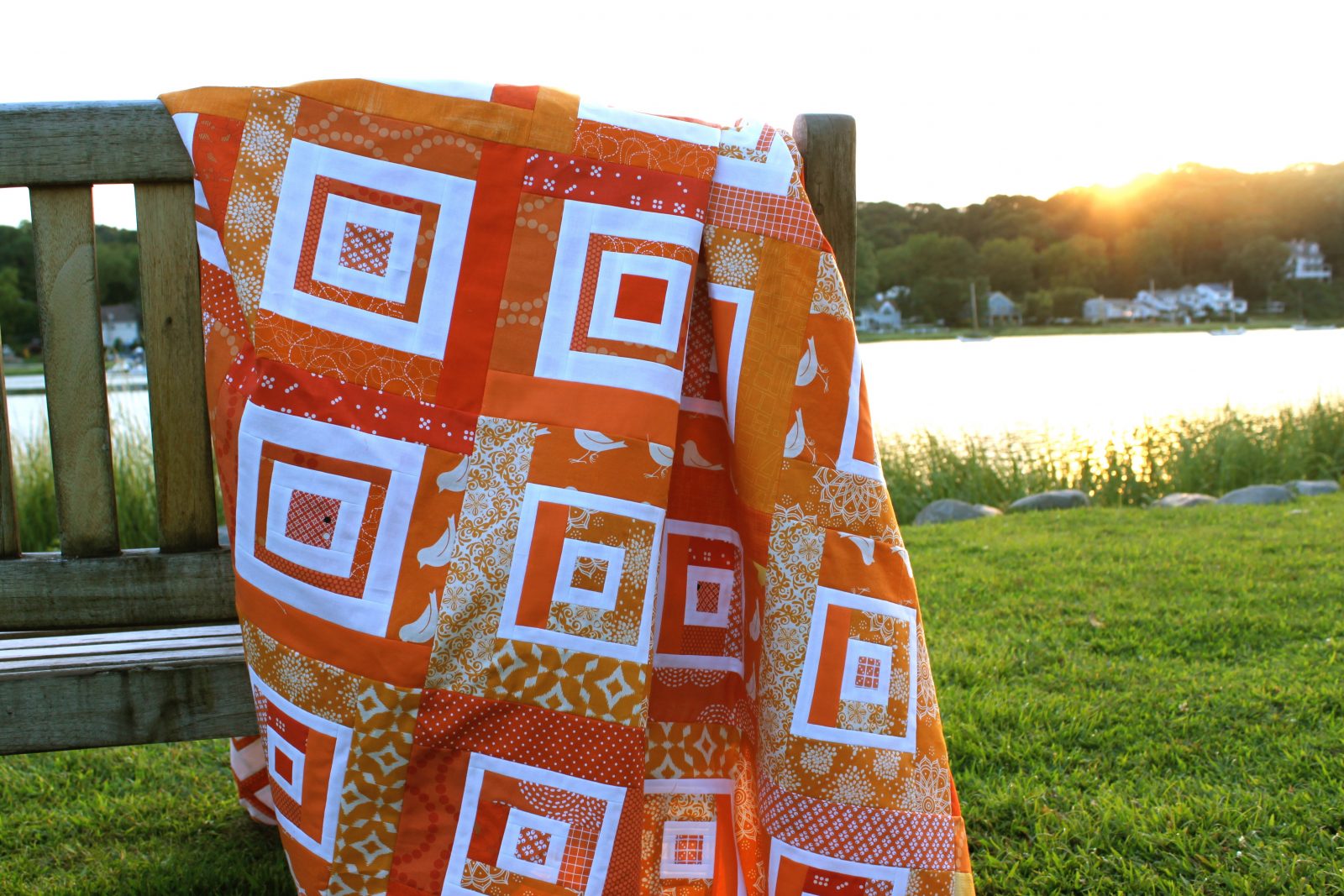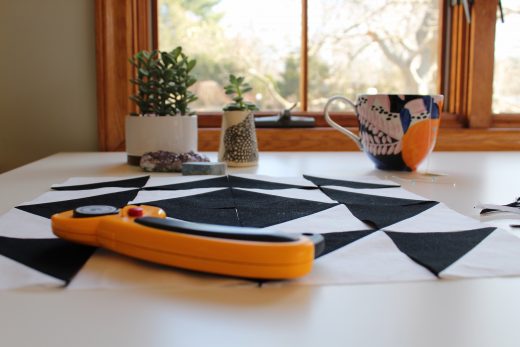Today, I’ve been thinking about mentors. In her book Lean In, Sheryl Sandberg discusses the impact that having a mentor can have on a career, particularly for women. Sheryl recognizes that having a mentor is essential to succeeding. Mentors usually champion the talents and capabilities of their mentees. When it comes to promotions and new opportunities, traditionally mentors bring their protege along with them. Having a mentor/mentee relationship facilitates networking and helps to build the career of the mentee.
When applying this concept to other aspects life, outside of a career, it still seems like having a mentor would be beneficial. So what about in a craft, particularly quilting? How does having a mentor come into play?
What Makes a Mentor
A traditional mentor/mentee relationship is when someone more senior or experienced takes a less experienced person in their same field under their wing. A mentor offers guidance and support to her protege. While there are formalized networks established in many workplaces to facilitate mentorships, there are also “informal” mentor relationships, too. These are typically organic relationships. At the time, it may be seen as just someone “doing something nice for us” or being generous with their time. But with the clarity of hindsight, we can distinguish those who have encouraged us, lifted us up, and guided us along our paths — even if we didn’t realize it was happening in the moment.
If you think back on your own quilting journey thus far, chances are, there was a more experienced quilter that you turned to or looked up to for guidance when you needed it. This person might not even be aware how much you have valued their input and experience. But to you, they may be the voice that helped move you forward when you were stuck, or that provided you with tips and techniques to improve your projects.
Peer Mentoring
In addition to the classic form of senior/junior level mentorship, peer mentorship is also an important form of mentoring. According to Everwise, a company that facilitates mentoring networks for executives, peer mentorship occurs when individuals at similar skill and experience levels mentor one another to overcome obstacles, share experiences and help one another to grow. These relationships can be one-on-one or in a group setting.
When it comes to quilting, we often are in reciprocal peer mentoring relationships through our connections with others in our guilds. Through group learning, show and share, and open dialogue, we form bonds with others whose work we admire and aspire to. We also form peer mentoring relationships through the comments in our Instagram feeds or in moderated Facebook groups. The opportunities to experience a mentoring relationship are greater than ever. As long as we are open to reaching out and being reached out to, we can experience its benefits.
Are You Someone’s Mentor?
Conversely, you may not even realize that someone is looking up to you as a mentor. Often as quilters we are compassionate toward one another’s creative challenges because we can place ourselves in similar situations. We offer our guidance and experience to others without even thinking about what we are doing. But, if we think about it in relation to mentoring, the guidance that you offer may be the very seeds of a relationship that the recipient of your advice can grow from and use to continue to develop their talents.
It might feel intimidating to think of yourself as someone’s mentor! But, there are also many benefits to the mentor in assuming the role. Mentoring provides an opportunity for self-reflection and new inspiration. By helping a protege tackle a technique or a challenge, a mentor also forces herself to review her own skills and responses to difficult problems. Supporting a mentee and pointing out their best qualities is also a way for a mentor to reflect upon their own skills and accomplishments. By being a role model to another, its a constant reminder to keep pushing, to keep learning and to keep challenging oneself.
In the end, life is all about the connections we make. Quilting is a way that we bring relationships into our lives. We give quilts as gifts for others, we connect with others that share a passion for the same craft as ourselves, and we share our knowledge and work with others — both in person and online. I believe having a mentorship is just another way to deepen our connection to our craft and those who quilt alongside us.
Let’s Discuss
So, tell me, is there someone that you consider to be your quilting mentor? Or do you consider yourself a mentor to another quilter? What is that relationship like and what have you gained from it? I’d love to hear in the comments!






Yvonne @Quilting Jetgirl
April 5, 2018 at 2:49 pmI definitely feel like I currently have peer mentorship that goes both ways. It’s nice to have a close quilting buddy, and I use Slack to keep in touch and super connected to mine.
lelandavestudios@gmail.com
April 6, 2018 at 9:56 amSlack? I will have to look into that! You have been a huge support of so many in the community through you blog and the new quilt bloggers blog hop. I definitely consider you a mentor, particularly in the blogging and community building aspect of quilting!
Michelle @ From Bolt to Beauty
April 6, 2018 at 9:19 amI don’t have an in-depth, long-term mentor relationship, but I do have a lot of wonderful and more experienced quilters in my life whom I can turn to for advice and guidance. In the realm of quilting, I think that’s ideal. Every quilter has a unique take on the process of creating; I like hearing what different people have to say about something–pressing, making HSTs, whatever!–and decide what works for me.
I recently demoed my method for finishing my bindings by machine. I was surprised when some of those very people I turn to for help found my contribution to the binding conversation both novel and helpful. (Go figure!)
lelandavestudios@gmail.com
April 6, 2018 at 9:49 amIt’s true. We don’t recognize our own talents that we are sharing with others. I think it is easy to assume that everyone already knows the same things that we know how to do. I definitely consider you my peer mentor. I have learned many quilting tips from you — and your impeccable bag sewing!
4 Ways a Growth Mindset Can Help You Achieve Your Quilting Goals - LELAND AVE STUDIOS
April 11, 2018 at 1:10 pm[…] Having a mentor to serve as a growth mindset role model can help you to stay on track when things get difficult. To learn more about the importance of having, or being, a mentor, click here. […]